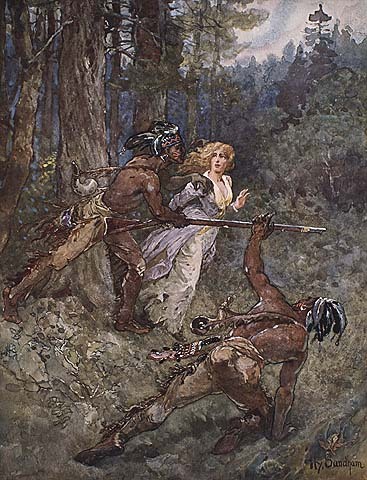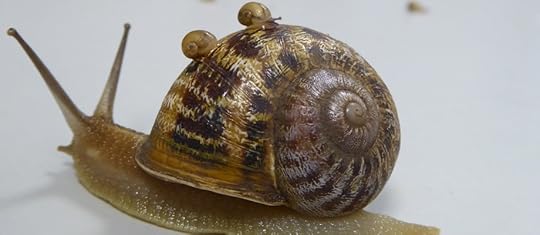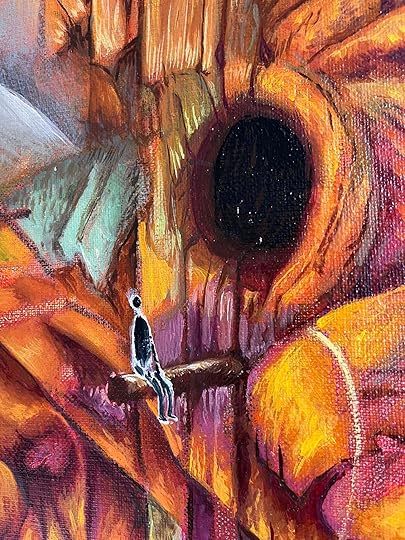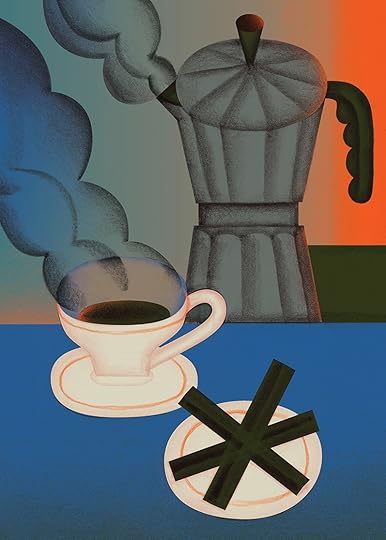What do you think?
Rate this book


352 pages, Hardcover
First published June 3, 2025
“But why must a country be bombed before we care about it?”
“If I really focus, I can end the war.
In its beginning, while chanting “NATO! Close the skies!” at downtown Vancouver rallies, I knew how I’d end it: a solid iron shield would slide over Ukraine, protecting its people and land from Russia’s incessant bombardment.
But why cut Ukraine off from the sun?
No, I’d cover Russia. A sarcophagus built over the entirety of Russia, much like the one built over the radioactive remains of the Chernobyl disaster, so that Russians could stop wreaking havoc on neighboring countries. Let them figure themselves out, their mysterious bottomless souls, within their own borders.
Or, another way to end it: each missile shot from Russia would stop midair, spin around, pummel into its exact point of origin.”
“My first book? The irony is that it was also about Ukraine—about Soviet Ukraine, that long-gone Ukraine I’m more familiar with, since that’s the place I left—and for the book’s release I had written op-eds to be printed in newspapers, essays about growing up in Ukraine, the language politics, but they got canned when the pandemic hit. Now those same newspapers are calling me, asking me to write about Ukraine again, promising to actually publish this time, probably canning other writers’ pieces because now “my” cause is more important. I’m getting calls for magazine interviews, photo shoots, radio appearances I’d only dreamed of when my book first came out. I’m trying to be grateful. But why must a country be bombed before we care about it?”
Summarize in one sentence how you will ensure safe working conditions for yourself and others through proper Covid-19 safety protocol. This summary will be used in the CAF’s official reporting.
A quote from a Ukrainian MP: “One upside of this war is that we’ve finally vanquished Covid.”
Further describe how you will ensure safe working conditions for yourself and others through proper Covid-19 safety protocol.
As of the time of writing, Russian troops are withdrawing from Kyiv to focus their assault on the eastern region of Donbas, thereby rendering access to Covid-19 testing clinics possible again, if any remain. I pledge to adhere, with unwavering commitment, to any and all local Covid-19 prevention guidelines—in extraordinary instances where there are none, I will be only too pleased to observe CAF’s own—in addition to being inoculated with the latest and finest booster vaccine available. Should I find myself sheltering with members not of my household during an air raid, I will maintain the appropriate social distance of six feet and will actively assist those around me to do the same; no moment is inopportune for a little public health education. The possible malfunction or detonation of the Zaporizhzhia nuclear power plant, currently being occupied and shelled by Russians, may pose additional challenges, but in case of a nuclear incident, should I find myself experiencing a medical exigency I will alert the emergency operator if I have, or suspect I have, Covid-19, and will be sure to don a mask when help arrives.
“Snails weren’t pandas — those oversize bumbling toddlers that sucked up national conservation budgets — or any of the other charismatic megafauna, like orcas or gorillas. Snails weren’t huggy koala bears, which in reality were vicious and riddled with chlamydia. Nor were snails otters, which looked like plush toys made for mascots by aquariums, despite the fact that they lured dogs from beaches to drown and rape them.“





Art is supposed to provoke reaction


